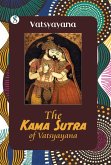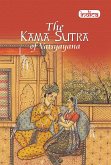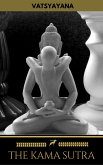The Kama Sutra of Vatsyayana is a seminal work that transcends its common perception as merely a manual of sexual positions, revealing itself as a sophisticated treatise on love, relationships, and the art of living harmoniously. Composed in the 3rd century CE in ancient India, this text intricately weaves together philosophy, sociology, and eroticism, offering insights into the complexities of human desires and the moral implications of sensual pleasures. Vatsyayana's literary style deftly combines poetic prose with practical instruction, underpinned by a profound understanding of cultural norms and the human condition within the socio-political landscape of ancient India. Vatsyayana, a sage and philosopher, is believed to have drawn on existing traditions of thought and practice, deeply influenced by the intricate social structures of his time. His insights stem from a blend of scholarly pursuit and lived experience, reflecting the attitudes towards sexuality and companionship prevalent in Indian society. This confluence of intellectual and experiential knowledge births a work that is both timeless and culturally specific, bringing depth to the apparently frivolous subject of love and sensuality. The Kama Sutra is highly recommended to readers not only for its historical significance but also for its timeless exploration of intimacy and emotional connection. It challenges modern perceptions of sexuality by inviting us to understand desire as entwined with social ethics and personal growth. This book serves as a profound reflection on the nature of love, making it essential reading for anyone interested in philosophy, psychology, or human relationships.
Dieser Download kann aus rechtlichen Gründen nur mit Rechnungsadresse in A, B, BG, CY, CZ, D, DK, EW, E, FIN, F, GR, HR, H, IRL, I, LT, L, LR, M, NL, PL, P, R, S, SLO, SK ausgeliefert werden.








